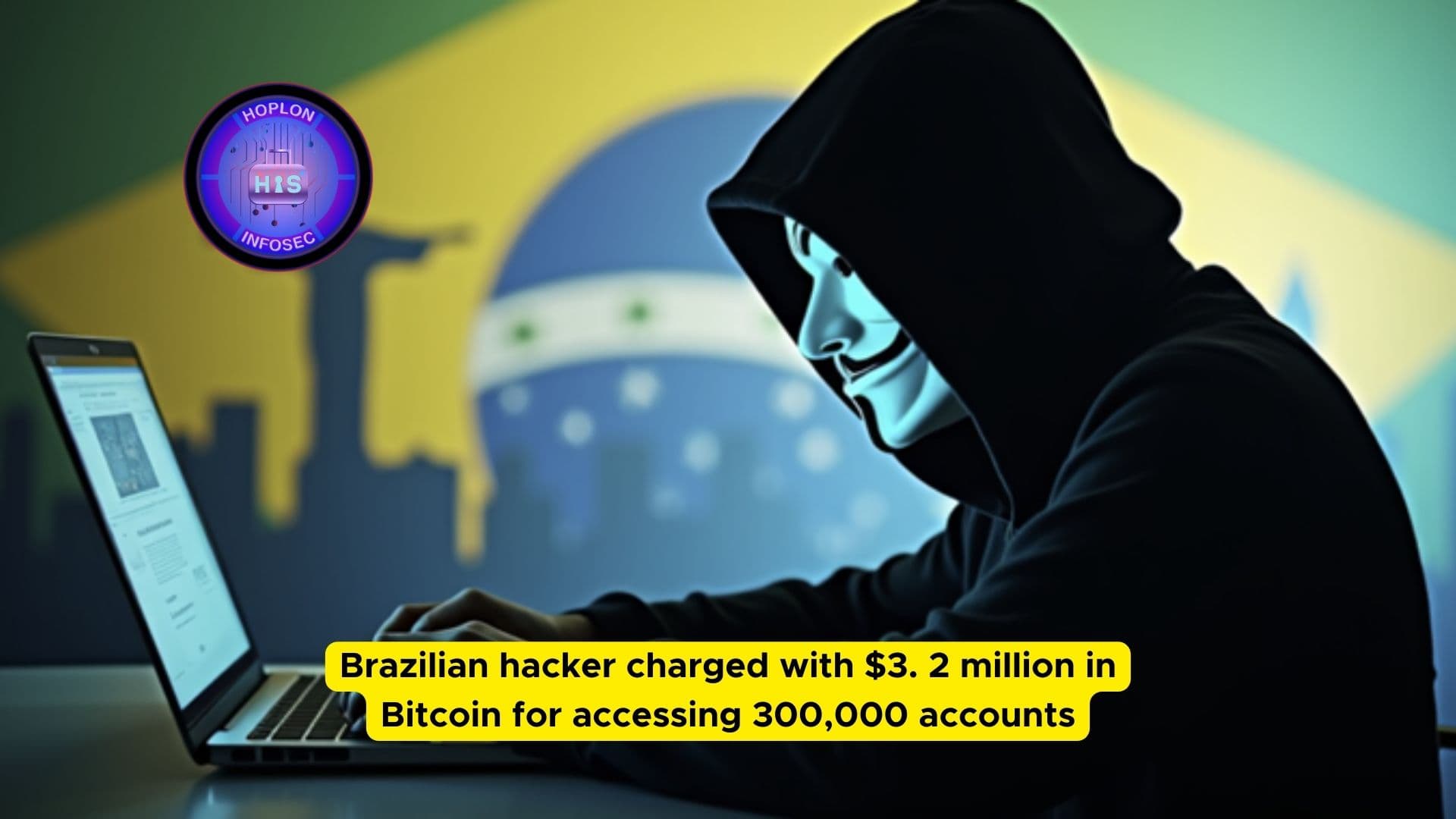Brazilian hacker charged with $3. 2 million in Bitcoin for accessing 300,000 accounts

Hoplon InfoSec
26 Dec, 2024
In an era where digital security has become paramount, a significant cybercrime case involving a Brazilian national targeting an international corporation has emerged. The U.S. Department of Justice recently unsealed an indictment charging Junior Barros De Oliveira, a 29-year-old resident of Curitiba, Brazil, with multiple cybercrime-related offenses. This case highlights the growing sophistication of international cyber threats and the increasing vulnerability of corporate networks to targeted attacks.
The Timeline of Brazilian Hacker Events

The incident began in March 2020, when many organizations adapted to remote work environments due to the global pandemic. De Oliveira allegedly orchestrated a sophisticated cyber attack targeting the Brazilian subsidiary of a New Jersey-based company. The timing of this attack is particularly noteworthy, as many businesses struggled to maintain robust security measures while transitioning to remote operations.
The breach occurred through a series of calculated intrusions, with De Oliveira allegedly accessing the company’s network on at least three occasions. During these unauthorized access events, he extracted sensitive customer information belonging to approximately 300,000 individuals, demonstrating the significant scale of the data breach.
The Extortion Attempt
In September 2020, the situation escalated when De Oliveira allegedly initiated contact with the company’s CEO through an anonymous email. The communication detailed a demand for 300 bitcoin, equivalent to approximately $3.2 million. This choice of cryptocurrency as the preferred payment method is consistent with current cybercrime trends, as digital currencies offer perceived anonymity and are difficult to trace through traditional financial channels.
The extortion attempt didn’t stop there. In October 2020, De Oliveira expanded his pressure campaign by forwarding the threatening message to both the CEO and an executive at the Brazilian subsidiary. This escalation demonstrates a common tactic used by cybercriminals to increase pressure on their targets by widening the circle of awareness within the organization.
The “Security Consultant” Approach

De Oliveira allegedly attempted to legitimize his actions by presenting himself as a security consultant in a calculated move that reveals the sophisticated nature of modern cybercrime. He contacted a company representative, offering to help “solve this security flaw” for a reduced fee of 75 bitcoins (approximately $800,000). This approach, known as “bug bounty extortion,” is an increasingly common tactic where criminals attempt to disguise their malicious actions as legitimate security research.
Legal Implications and Potential Consequences
The charges brought against De Oliveira are significant and reflect the serious nature of cyber extortion in modern society. The indictment includes four counts of extortionate threats involving information obtained from protected computers, each carrying a maximum prison sentence of 5 years and a potential fine of $250,000 or twice the value of any gain or loss, whichever is greater.
Additionally, De Oliveira faces four counts of threatening communications, each punishable by up to 2 years in prison and similar financial penalties. If convicted on all counts, he could face up to 28 years of imprisonment and substantial monetary penalties, highlighting the severe consequences of cybercrime in the modern legal framework.
Broader Implications for Corporate Security
This case is a crucial reminder of the evolving nature of cyber threats facing businesses today. Organizations must recognize that cyber attackers are becoming increasingly sophisticated in their approaches, often combining technical expertise with psychological manipulation tactics. The incident demonstrates several critical lessons for corporate security:
The importance of maintaining robust security measures, even during organizational change or crisis periods, cannot be overstated. The timing of the initial breach during the early stages of the pandemic highlights how criminals often exploit periods of disruption.
Organizations must have comprehensive incident response plans before a breach occurs. Responding quickly and effectively to unauthorized access attempts can significantly minimize damage and prevent data exfiltration.
The case also emphasizes the global nature of cybercrime and the challenges of enforcing cybersecurity laws across international boundaries. While the victim company’s subsidiary was located in Brazil and the alleged perpetrator is a Brazilian national, the case is being prosecuted in the United States due to the parent company’s location.
Moving Forward: Strengthening Cyber Defenses

As organizations face sophisticated cyber threats, this case underscores the need for enhanced security measures and international cooperation in combating cybercrime. Companies must invest in robust cybersecurity infrastructure, regular security audits, and Employee training programs to prevent similar incidents.
The increasing prevalence of cyber extortion attempts highlights the importance of maintaining secure backup systems and implementing strong data encryption protocols. Organizations should regularly review and update their security policies, particularly regarding access controls and monitoring systems for unusual network activity.
This case is a stark reminder that cybercrime knows no borders and that organizations must remain vigilant in protecting their digital assets. As technology continues to evolve, so will the methods used by cybercriminals, making it essential for businesses to stay ahead of emerging threats through continuous security improvements and international collaboration in law enforcement efforts.
For More:
https://thehackernews.com/2024/12/brazilian-hacker-charged-for-extorting.html
Share this :